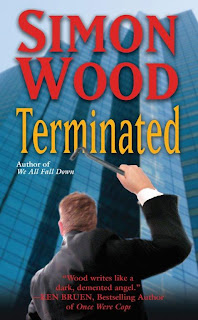
RO: I can't tell you how many times people have asked me who I see playing Paula Holliday in the film or tv version of the Dirty Business mystery series. Unless they know something I don't, it's not a question I'm going to have to give serious thought to in the forseeable future. But I'm asked all the time (as I'm sure the rest of you are.) I recently had the most fun exchange about this at the New Haven Free Public Library.
Once again I had no quick answer for Paula's role. In the past I've said Sandra Bullock, Julia Roberts, Drew Barrymore, Amy Adams, Jennifer Lopez, Kate Hudson..the list goes on.
It's not that I don't know what she looks like - she's in her thirties, long dark hair and she's athletic. But that's about it. I haven't given her flashing green eyes or a pert turned up nose..or a hunchback. She's of Italian-Irish extraction so she could look like anyone. So far I've preferred to let the reader fill in some of the blanks.
That said, I have always felt that Babe would be played by Ellen Barkin. I bumped into her once at Canyon Ranch. She's of a certain age, still hot and appears to take no crap from anyone. (Ellen, if you're out there this is a great role for you. I'll even write the younger boyfriend back into the next book.)
ANYWAY..at this book discussion, all the attendees had read Dead Head. One thought Babe should be played by Susan Sarandon. Another said the actress from Alice (no one could remember her name, older, but it wasn't Linda Lavin or Ellen Burstyn.) But my favorite suggestion was Pam Grier. Pam Grier...Foxy Brown! I loved it. Each of us thought we had the perfect Babe and they couldn't have been more different. Which is why it's fun to sometimes let the reader decide.

So now I will ask you all the same question..
ROBERTA: Ro, I am so out of touch with Hollywood that I have a hard time answering that question about Rebecca Butterman when it comes up. Your list is very good--can I have whoever is left over? Of course my favorite actress is Meryl Streep and I have complete faith that she could play someone in her late thirties. So if she's free, I'll take her!
When my golf mysteries were au courant, one dear friend was insistent that he would play the golf psychologist in the series, Dr. Joe Lancaster--young, tall, handsome and athletic. Never mind that my friend is short, Jewish, and in his 80's. If he wanted to imagine himself as Dr. Lancaster, who was I to argue?
RO: That's funny. I have two friends who think they're Lucy Cavanaugh. I used to see her as Parker Posey...a very good indie actress.
HALLIE: I've been on tenterhooks wondering if NEVER TELL A LIE will get made into a Lifetime movie -- it's been optioned by a production company twice but it's still not, as I've learned that they say in the biz, not greenlighted. But if I were casting Ivy Rose, a very pregnant and 'interesting looking' thirty-something, it would be a young Debra Winger. Or Laura Linney. Or Catherine Keener. And wouldn't it be great if it was an actress of that calibre?

RO: I love Catherine Keener...she's terrific.
RHYS: I had a very heady Hollywood moment when Her Royal Spyness was optioned and I had lunch with the producers and they asked me what my feelings were about Keira Knightley. We actually came to the conclusion that Emma Watson might be a better bet. As yet the project is moving forward, so they say, and an English production company is on board but we haven't got to the casting stage. It's all pie in the sky and rather fun in the abstract.
However a Welsh website did once ask who should play Constable Evans in a TV version and the winner was Euan Gruffydd (I think that's how he spells his name). There is an option on that series too, but I'm being realistic about how few of these come to fruition.
I must say it would be strange to watch my characters interacting on the screen. I've just been contacted by the actress who is going to read for the audio version of the Royal Spyness books and she was kind enough to ask how I wanted various things pronounced. I might even listen to these. I've never listened to one of my audio books before.
HANK: Oh, Rhys, I love Ioan Gryffud (maybe that's right?) He was Horatio Hornblower, too, and I thought he was terrific.
For Charlie? No question, Rene Russo. (She can look fabulous, all gussied up, or just regular-normal. Just like Charlie.) Rene! Are you out there? For Josh, Gregory Peck. Oh, that won't work, more's the pity. Jeremy Northam?

RO: Do I really know two people who know who someone named Ioan Gryffud is?
JAN: I don't know who she is, Ro. always thought Sandra Bullock would make a great Hallie Ahern. But I'd really love to see Parker Posey in the role. A younger Kevin Kline would make the perfect Matt Cavanaugh.
HANK: He! (And he's very very attractive, I might add.) Netflix Horatio Hornblower. Really wonderful. And then there'll be more of us who know who he is!
RO: I love that they're all strong women and not a bunch of cutie-pies. Although if one of the cutie-pies wanted to option our books, I'm sure we'd say yes.


































